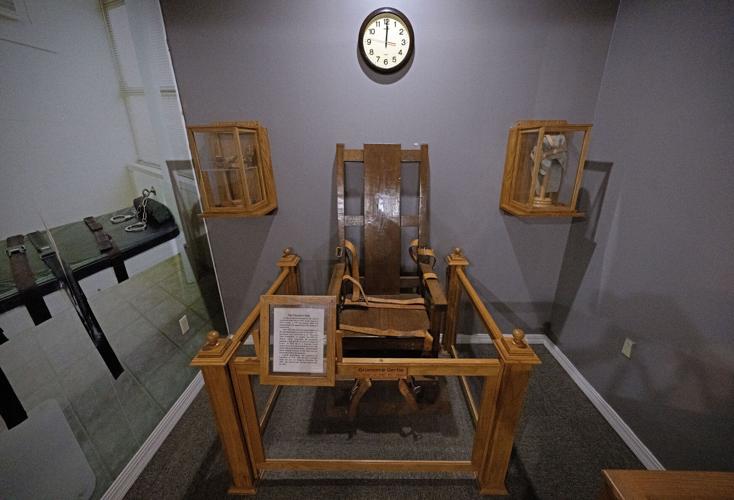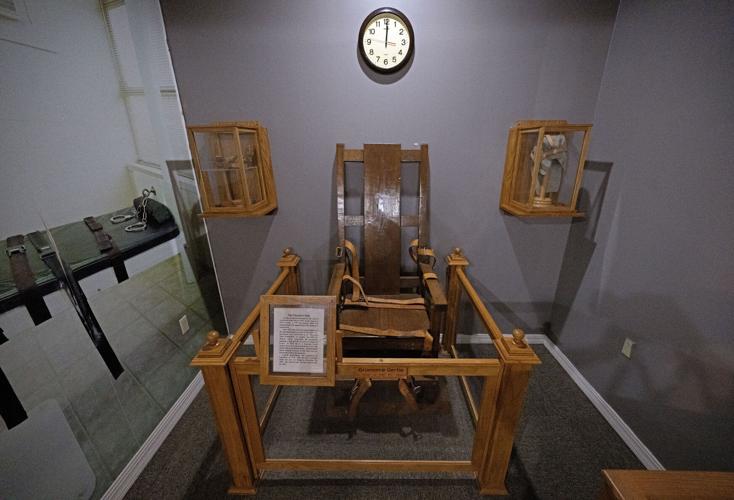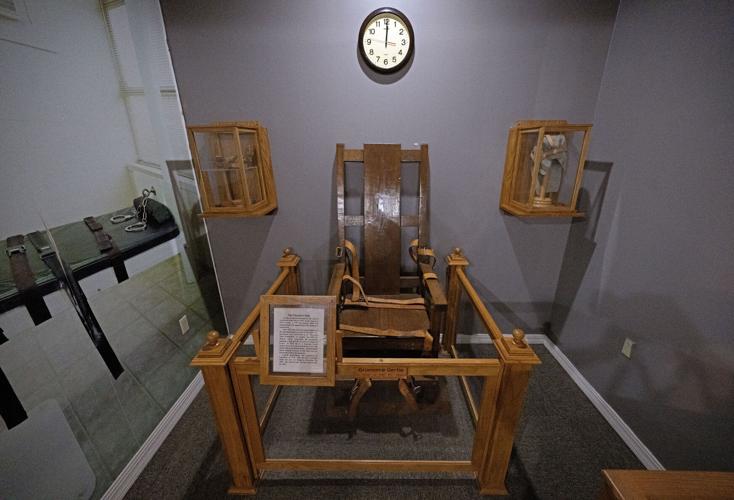A Louisiana Senate Committee voted Tuesday to strike nitrogen gas suffocation from the state's list of approved execution methods, reversing one of Republican Gov. Jeff Landry's tough-on-crime priorities.

Sen. Katrina R. Jackson-Andrews, D-Monroe, speaks during Governor Jeff Landry’s special session focusing on crime, Wednesday, February 28, 2024, at the Louisiana State Capitol in Baton Rouge, La.
The Senate Judiciary B Committee moved with no objections to advance a bill by Sen. Katrina Jackson-Andrews, D-Monroe, that would remove gas from the list of methods the state can used to execute death row prisoners. The measure is Senate Bill 430.
A bill pushed by Landry earlier this year had added nitrogen hypoxia and electrocution to the state's existing lethal injection process, enflaming a debate over capital punishment that drew particular outcry from Jewish activists, who argued that the method evokes the Nazi regime's use of gas, and others opposed to the largely untested method of suffocating prisoners to death with nitrogen.
"We recognize, of course, that the gassing of innocent victims in the Holocaust is quite different from executing a convicted criminal," said Naomi Yavneh-Klos, a Loyola University professor and member of the Jews Against Gassing Coalition, whose members have varied views on capital punishment but agree that gas should not be used for that purpose.
"But for Jewish people, and really anyone with knowledge of the Holocaust," she continued, "the historical association with this execution method is chilling and undeniable, eliciting a visceral response that evokes not justice, your goal, but genocide."
Less than an hour after the hearing ended, a small press conference by that group on the Capitol steps was disrupted by a pro-death penalty protestor who repeatedly shouted over the activists as they spoke about the trauma of the Holocaust.
Nitrogen gas has been used only once to carry out an execution in the United States. Alabama Department of Corrections officials in January executed Kenneth Eugene Smith for a 1988 murder-for-hire by strapping a mask to his face and pumping nitrogen into his lungs.
Smith "writhed violently" on the death chamber gurney for several minutes before "gasping and struggling for air," said Lee Hedgepeth, an Alabama journalist who witnessed the execution.
At Tuesday's hearing, Rapides Parish District Attorney Phillip Terrell spoke briefly against the bill along with Sally Ann Richard, whose husband was stabbed to death in 1993 in their Cheneyville home.
"I think he deserves death row," Richard said of her husband's killer, Larry Roy, who was sentenced to death for the slaying.
Jackson-Andrews, the bill's sponsor, took care to tell Richard after her testimony that the bill would not outlaw the death penalty or affect the other two execution methods currently allowed under state law.
Republicans in Louisiana's GOP-dominated Legislature mostly fell in line with Landry's sweeping push to toughen the state's criminal codes through longer sentences and easier methods to carry out executions. Landry advanced those goals through a whirlwind special session earlier this spring that eliminated parole for adults convicted of crimes after Aug. 1 and pared back early release for good behavior.
But at Tuesday's hearing, none of the four Republicans on the Judiciary B Committee objected to the bill's passage. The committee advanced it to the full Senate after the brief testimony. It must pass the House and be signed by Landry, or overcome a veto by two-thirds votes in both the House and Senate, to become law.
Unlike elsewhere, Louisiana’s new death penalty law would leave the choice among the state's three existing execution methods to the state corrections secretary. Secretary Jimmy LeBlanc has not publicly said which method he would favor.
Louisiana last put someone to death 14 years ago when Gerald Bordelon voluntarily chose to be executed by lethal injection for the murder of his 12-year-old stepdaughter.













